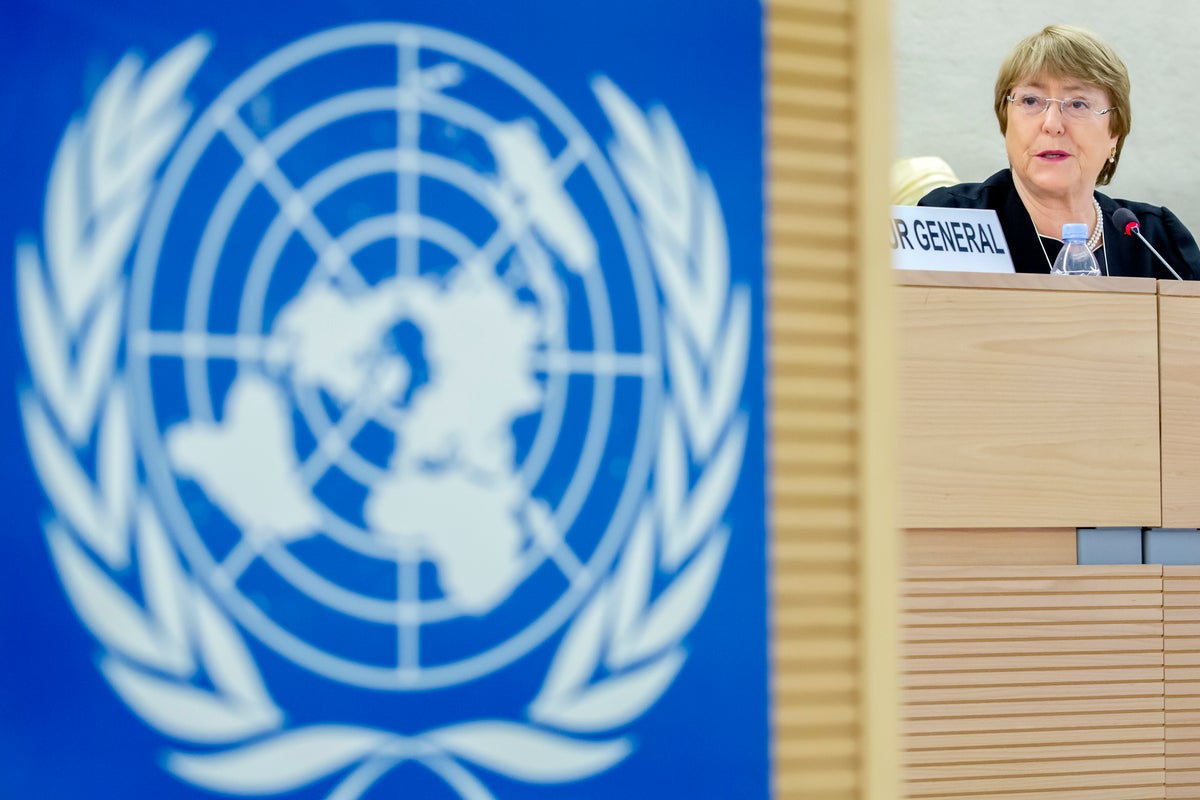
In a close diplomatic victory for China, the U.N.'s top human rights body on Thursday voted down a proposal from Britain, Turkey, the United States and other mostly Western countries to hold a debate on alleged rights abuses against Muslim Uyghurs and other ethnic minorities in China's western Xinjiang region.
At the 47-member state Human Rights Council, 17 countries voted in favor, 19 were against, and 11 abstained in a vote to hold a debate on Xinjiang at its next session in March. The vote amounted to a test of political and diplomatic clout between the West and Beijing, and would have marked the first time that China's record on human rights would merit a specific agenda item at the council.
The result, prompting a smattering of applause in the chamber, followed days of diplomatic arm-twisting in Geneva and in many national capitals as leading Western countries tried to build momentum on a report from former U.N. human rights chief Michelle Bachelet's office, released Aug. 31, which found that possible “crimes against humanity” had occurred in Xinjiang.
A simple majority of voting countries was required.
The make-up of the council rotates among U.N. member states each year, and China — a powerful country with a permanent seat on the Security Council — has never been the subject of a country-specific resolution at the council since it was founded more than 16 years ago.
“It's always difficult for countries to vote against a permanent member of the Security Council," said one Western diplomat, speaking on condition of anonymity because of the sensitivity of the matter. He acknowledged it was a “genuinely difficult call” for some countries — notably those with economic or political ties to China — to sign on to the measure.
The proposal was for just to hold a debate, with no consistent monitoring of the rights situation, and amounted just about the least intrusive form of scrutiny that the council could seek.
The call stopped short of creating a team of investigators to look into possible crimes in Xinjiang, or appointing a special rapporteur — a tacit acknowledgement by the Western countries that going after increasingly influential China would be a tall order.
On Friday, as part of dozens of proposals before the council, member states are also to consider a proposal from 26 European Union countries to appoint a “special rapporteur” on Russia, citing a string of concerns about mass arrests and detentions; harassment of journalists, opposition politicians, activists and rights defenders; and crackdowns — at times violent — on protesters against President Vladimir Putin’s war in Ukraine.
It's part of a rare push against two permanent members of the Security Council: China and Russia. Some Western diplomats have insisted the two-pronged effort needed attention now.
The council has already commissioned a team of investigators who are looking into human rights violations and abuses in Ukraine following Putin's order for a military invasion of Ukraine in late February.







